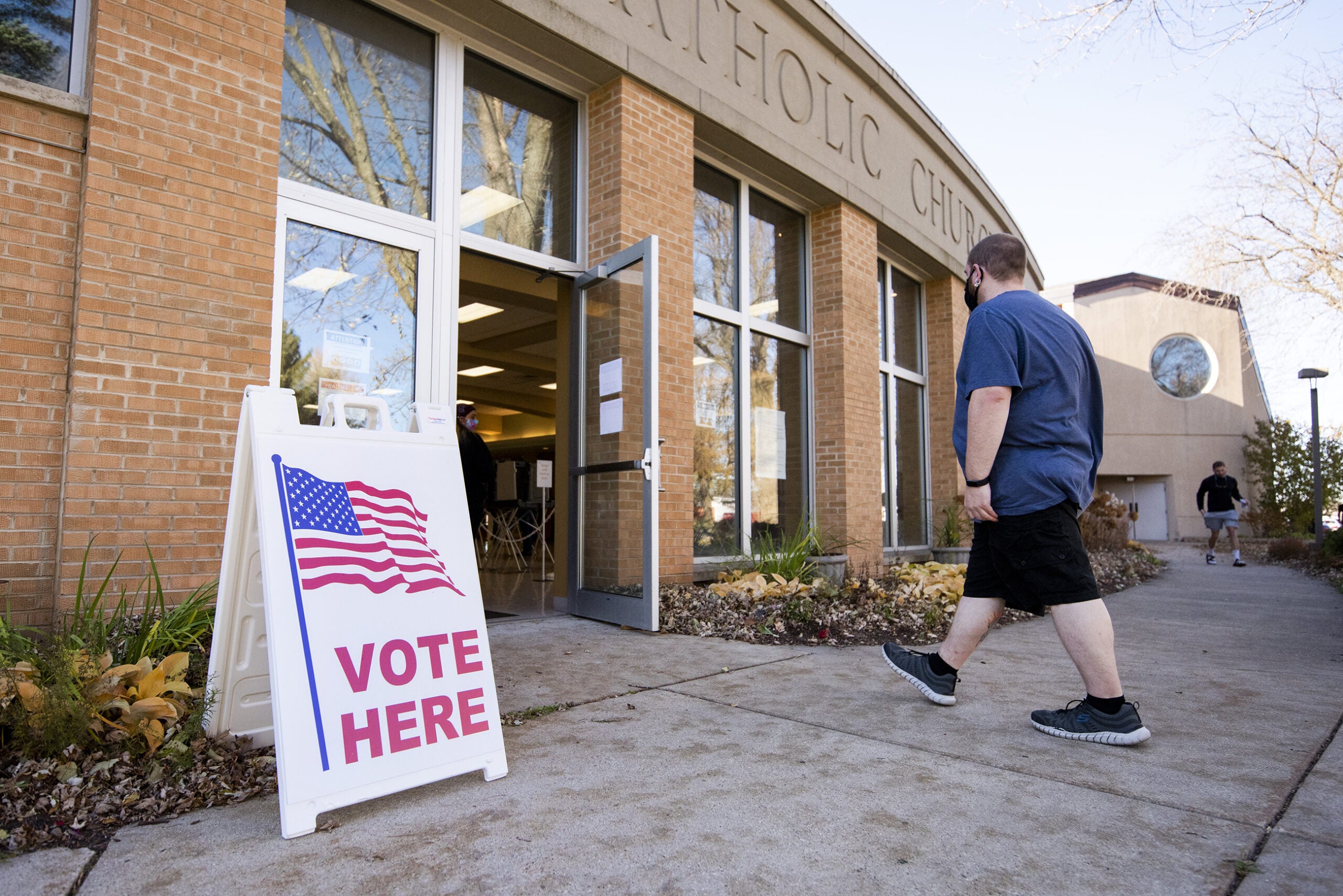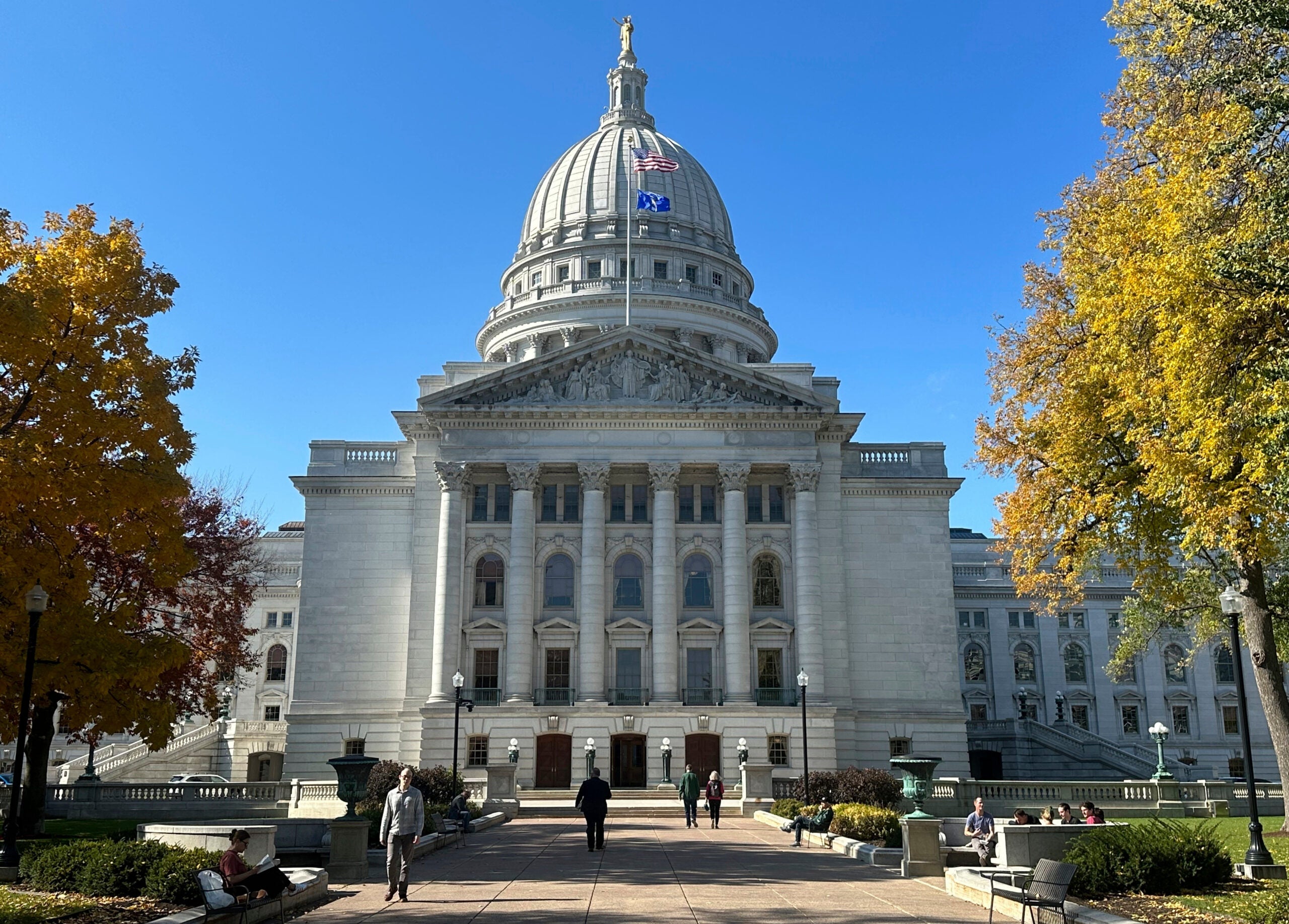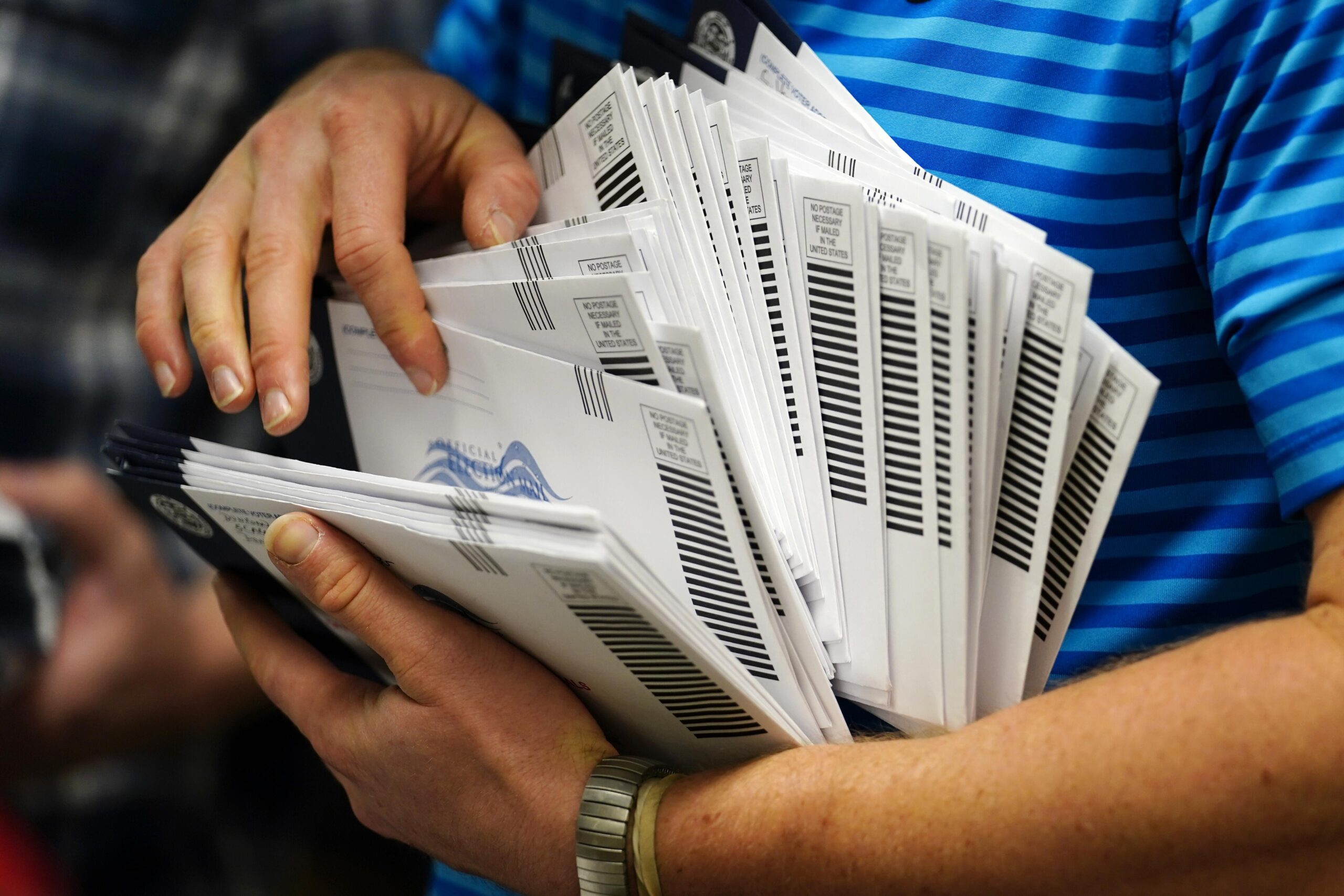A day after his campaign filed its first lawsuit in Wisconsin seeking to overturn the results of the state’s November election, President Donald Trump has filed another, this one in federal court.
Attorneys for Trump filed the lawsuit Wednesday in U.S. District Court in Milwaukee, arguing that an influx of absentee ballots in the 2020 election had cast doubt on the results of the election and asking the court to rule that the state Legislature must pick Wisconsin’s presidential electors instead.
The lawsuit comes a day after Trump’s campaign filed a lawsuit with the Wisconsin Supreme Court seeking to reject more than 220,000 ballots cast in Dane and Milwaukee counties.
News with a little more humanity
WPR’s “Wisconsin Today” newsletter keeps you connected to the state you love without feeling overwhelmed. No paywall. No agenda. No corporate filter.
Trump’s federal lawsuit, which he brought against members of the Wisconsin Elections Commission, the governor, and mayors of five cities, among others, makes similar arguments as the state case.
At its core, the case argues that the Wisconsin Elections Commission gave guidance to clerks that was inconsistent with the laws passed by the state Legislature, saying this “likely tainted more than 50,000 ballots.”
The commission’s mistakes, the lawsuit argues, include its guidance that clerks should fill in missing address information for people who witness absentee ballots. The president’s lawsuit also argues the commission’s guidelines led to too many absentee voters claiming that they were “indefinitely confined,” which lets them submit an absentee ballot application without providing a photo ID first.
But the president’s federal lawsuit also includes much broader attacks on absentee voting and mail-in voting, which it argues “discriminates against able-bodied voters” who vote in person on Election Day.
“Mail-in voting works against those who cast their ballot in-person in multiple pernicious ways,” the lawsuit argues.
Trump’s lawsuit also focuses on $6.3 million in private grant funding awarded to help run elections in the cities of Green Bay, Kenosha, Madison, Milwaukee and Racine. The grant came from a group called the Center for Tech and Civic Life, an organization that received funding from Facebook CEO Mark Zuckerberg.
That funding is at the core of another lawsuit filed with the state Supreme Court, as well as in a previous lawsuit that was dismissed by a federal judge.
Trump’s lawsuit argues the funding drove “extraordinary voter turnout in these cities,” which is contends was “achieved via an unlawful absentee-ballot expansion plan.” The Center for Tech and Civic Life has noted in a separate filing in state court that it gave funding to 221 Wisconsin jurisdictions, not just the five cities in question.
Trump asked the court to block defendants from finalizing the results of the election, which showed Democratic President-elect Joe Biden winning Wisconsin by 20,682 votes.
“Plaintiff seeks a declaration and preliminary and permanent injunction that the Defendants and their practices described in this Complaint infringed and invaded upon the Wisconsin Legislature’s prerogative and directions under Article II of the U.S. Constitution regarding the conduct of the 2020 Presidential election in Wisconsin,” Trump’s lawsuit states. “Plaintiff asks this Court to immediately remand this matter to the Wisconsin Legislature to review the nature and scope of the infringement declared and determine the appropriate remedy for the constitutional violation(s) established, including any impact upon the allocation of Presidential electors for the State of Wisconsin.”
Trump’s attorneys in the case are William Bock III, James A. Knauer and Kevin D. Koons, all of Indiana.
Trump’s federal lawsuit is the sixth filed in Wisconsin seeking to overturn the state’s election results. Five of the cases are still active.
Wisconsin Public Radio, © Copyright 2025, Board of Regents of the University of Wisconsin System and Wisconsin Educational Communications Board.







